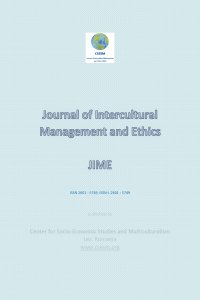Current Ethical Implications of Russian/Soviet Positive Eugenics
Current Ethical Implications of Russian/Soviet Positive Eugenics
Author(s): Sana LoueSubject(s): Human Rights and Humanitarian Law, Health and medicine and law, Demography and human biology, History of Communism
Published by: Center for Socio-Economic Studies and Multiculturalism
Keywords: Eugenics; Russia; genetic screening; Soviet Union;
Summary/Abstract: Eugenic theory was premised on a belief in genetic/biological determinism and promised the “self direction of human evolution.” Many Western nations, including the United States, utilized what have been called both negative and positive eugenic measures, seeking to eliminate “negative traits” from the populace through strategies that included restrictions on immigration, involuntary sterilizations of those deemed to be unfit, and segregation, while utilizing “positive” measures such as better baby contests, fitter family contests to encourage selective reproduction. In contrast, eugenicists in late Imperial Russia and the early Soviet period focused their efforts on positive eugenic strategies in an effort to halt what was seen as the growing degeneracy of the population and encourage the proliferation of desirable traits. An examination of the underlying basis for the “positive” approach and the reasons for its cessation raise important ethical issues for consideration today.
Journal: Journal of Intercultural Management and Ethics
- Issue Year: 5/2022
- Issue No: 3
- Page Range: 63-70
- Page Count: 8
- Language: English

